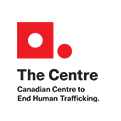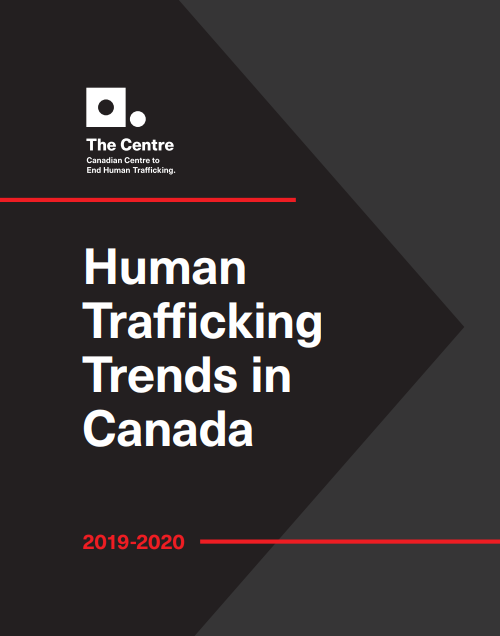In Canada, 90 per cent of sex trafficking survivors are women and girls
Toronto, Canada, October 14, 2021 – Data gathered during the Canadian Human Trafficking Hotline’s first year of operations shows that sex trafficking is a gender-based crime that predominantly impacts Canadian women and girls.
The Canadian Centre to End Human Trafficking’s report, Human Trafficking Trends in Canada (2019-2020), also reveals that transgender and gender non-conforming individuals experience trafficking at disproportionately higher rates relative to their population. This group represents 2% of all victims/survivors calling into the Hotline despite comprising 0.24% of the Canadian population
The Centre’s report is a first of its kind in Canada in that it does not rely on police-reported statistics. Instead, The Centre has used non-attributable data collected from the Canadian Human Trafficking Hotline to identify six broad trafficking trends in Canada.
The Report’s other findings include:
- COVID-19 has had a major impact on the social services that victims rely on to escape trafficking and heal. Approximately 1 in 5 service providers who responded to a survey indicated that they were no longer able to offer any or all of their services at the beginning of the pandemic (April-May 2020).
- The survey found that service providers have had to significantly adjust their operations during the pandemic, including reducing hours and moving services online. These changes can act as a barrier to victims who need in-person services or don’t have consistent access to the Internet.
- Anecdotal evidence has found that service providers themselves are often overwhelmed and burnt out, due to the stress of the pandemic and years of chronic underfunding.
- Between 2019-20, 415 cases of victims/survivors were reported to the Hotline
- Approximately 1 in 3 callers were victims/survivors, the highest percentage of caller types to the Hotline. This indicates that the Hotline is directly supporting those who are most impacted by this heinous crime.
- The vast majority of victims/survivors were Canadian; only 14 per cent of victims/survivors were foreign nationals
The report also found that while accessing support for human trafficking is a complex process, family and friends play a vital role in supporting victims and survivors.
“Close personal networks, particularly parents, are among the most trusted allies in combating human trafficking. They have direct contact with persons being groomed, exploited and who have survived this horrible crime. Services can be really hard to navigate, and friends and family members can play a vital role in helping them access the supports they need to exit and heal from their trafficking situation. Put simply – the more equipped Canadians are to spot the signs of human trafficking and how to respond, the more likely they are to fill gaps and save lives,” said Julia Drydyk, Executive Director, The Canadian Centre to End Human Trafficking. “We have to help them to know human trafficking and how to access available services to protect their loved ones.”
Thanks to our continued partnerships with 900+ service providers and law enforcement agencies, the Hotline was able to support those impacted by human trafficking, even during the pandemic.
Since 2019, The Canadian Centre to End Human Trafficking has operated the Canadian Human Trafficking Hotline, a confidential, multilingual service, operating 24/7 to connect Canadians with over 900 social and legal services nation-wide.
For more information or to arrange interviews, please contact:
Aziz Froutan
Communications Manager
The Canadian Centre to End Human Trafficking
afroutan@ccteht.ca
647-714-2527
About the Canadian Centre to End Human Trafficking:
The Centre is a national charity dedicated to ending all types of human trafficking in Canada. We work with like-minded stakeholders and organizations, including non-profits, corporations, governments and survivors/victims of human trafficking, to advance best practices, eliminate duplicate efforts across Canada, and enable cross-sectoral coordination by providing access to networks and specialized skills. We operate the Canadian Human Trafficking Hotline at 1-833-900-1010, a 24/7, multilingual access to a safe and confidential space to ask for help and connect to services.
What is human trafficking?
Human Trafficking is defined as recruiting, transporting, transferring, receiving, holding, concealing or harbouring a person, or exercising control direction or influence over the movements of a person, to exploit them or to assist in facilitating their exploitation (sections 279.01 and 279.011 of the Canadian Criminal Code).
For more information regarding the information presented in the Human Trafficking Trends in Canada (2019-2020) Report or The Canadian Centre to End Human Trafficking, please contact: media@ccteht.ca

